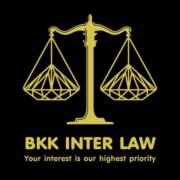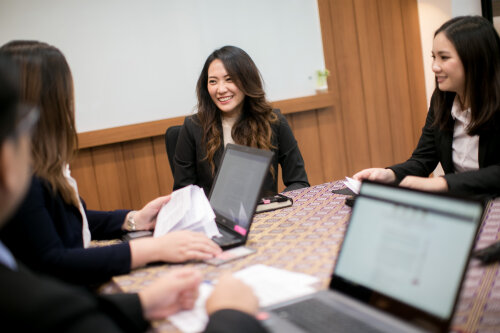Best Renewable & Alternative Energy Lawyers in Don Mueang
Share your needs with us, get contacted by law firms.
Free. Takes 2 min.
List of the best lawyers in Don Mueang, Thailand
About Renewable & Alternative Energy Law in Don Mueang, Thailand
Renewable and alternative energy is an increasingly important sector in Don Mueang, a district in northern Bangkok, Thailand. Driven by national policies for environmental conservation and sustainable growth, Don Mueang is seeing more investment in solar, wind, and biomass renewable energy projects. Laws and regulations in this field aim to encourage clean energy development, ensure environmental protection, and balance the needs of both private investors and the public. Understanding the legal framework is essential for anyone participating in or affected by renewable energy projects in this area.
Why You May Need a Lawyer
As the renewable and alternative energy sector grows, legal issues can arise for individuals, developers, investors, and communities in Don Mueang. You may need a lawyer if you are:
- Planning to install solar panels or renewable energy systems at your home or business and need help with permits or compliance.
- Investing in a renewable energy project and need advice on contracts, land use, and government incentives.
- Experiencing disputes with neighbors or government over the placement or environmental impact of an energy project.
- Seeking to understand your rights when a new energy project is proposed near your property.
- Pursuing claims related to environmental damage or compensation connected to renewable energy development.
A lawyer with expertise in renewable and alternative energy law can guide you through regulations, represent you in disputes, and help you obtain benefits or protections under Thai law.
Local Laws Overview
In Don Mueang, Thailand, renewable and alternative energy is regulated at multiple levels. Key aspects include:
- Energy Promotion Acts: National laws, such as the Energy Industry Act, set the standards for energy generation and distribution, and establish licensing requirements for operators.
- Permitting and Licensing: All renewable energy projects must comply with zoning rules, environmental impact assessments, and obtain permits from local and national authorities.
- Feed-in Tariffs and Incentives: Programs provide financial incentives for producing renewable energy, subject to strict application and reporting processes.
- Grid Connection: Rules govern how and when renewable energy producers can connect to the main electricity grid, including technical and safety standards.
- Environmental Protection: Thailand’s environmental laws mandate impact assessments for larger projects and set penalties for noncompliance.
- Land Use Regulations: Local zoning in Don Mueang affects where and how new renewable installations can be built.
Before beginning any renewable energy project in Don Mueang, it is important to fully understand these requirements, as violations can halt projects or lead to fines.
Frequently Asked Questions
What types of renewable energy projects are common in Don Mueang?
Solar rooftops are the most common, followed by smaller-scale wind and biomass projects. Ongoing government programs encourage homeowners and businesses to invest in clean energy.
Do I need a permit to install solar panels on my property?
Yes. Installation usually requires local permits as well as compliance with national grid connection standards. Approval depends on the size and type of the system.
Are there financial incentives for installing renewable energy in Don Mueang?
Thailand’s government offers incentives such as feed-in tariffs and tax benefits, but applicants must meet eligibility and application requirements.
How do I connect my renewable energy system to the electricity grid?
You must apply to the Provincial Electricity Authority or relevant utility, submit technical plans, and comply with safety standards and inspection processes.
Who do I contact for environmental approval of a project?
Large projects require approval from the Office of Natural Resources and Environmental Policy and Planning, while smaller projects may be reviewed by local district offices.
Can a homeowner sell excess electricity back to the grid?
Yes, under certain conditions. There are specific application processes and contracts with utility companies to sell surplus power generated from residential systems.
What should I do if my neighbor’s energy project causes a nuisance?
First, attempt to resolve the matter directly. If unsuccessful, you may file a complaint with the local authority or seek legal remedies with the help of a lawyer.
Are foreign investors allowed to own renewable energy projects?
Foreigners can invest but there are restrictions on land ownership and conditions set by the Board of Investment. Legal advice is critical for foreign investors.
What are the penalties for failing to comply with renewable energy laws?
Penalties can include fines, orders to stop work, revocation of licenses, or even criminal charges for severe violations.
How long does it take to get permits and approvals for a project?
Timeframes vary depending on project size and complexity. Small projects may be approved in weeks, while larger developments can take several months or longer.
Additional Resources
If you need more information or assistance, you may contact the following organizations and government departments:
- Provincial Electricity Authority (PEA) and Metropolitan Electricity Authority (MEA) for grid connection and technical issues.
- Ministry of Energy for policy information and incentive programs.
- Office of Natural Resources and Environmental Policy and Planning for environmental approvals.
- Board of Investment (BOI) for foreign investment regulations.
- Bangkok Metropolitan Administration for local permit and zoning inquiries.
- Thailand Renewable Energy Association for industry advice and networking.
Next Steps
If you are planning a renewable or alternative energy project or have legal concerns about an existing project in Don Mueang, consider these steps:
- Gather details about your project or concern, such as location, technology, and size.
- Contact local authorities to check permit and zoning requirements.
- Consult with a qualified lawyer who specializes in renewable and alternative energy law in Thailand.
- Document all communications and applications as part of your records.
- Stay updated on local and national laws, as regulations can change.
A professional legal consultation will help you avoid costly mistakes, maximize incentives, and ensure compliance for your renewable or alternative energy activities in Don Mueang.
Lawzana helps you find the best lawyers and law firms in Don Mueang through a curated and pre-screened list of qualified legal professionals. Our platform offers rankings and detailed profiles of attorneys and law firms, allowing you to compare based on practice areas, including Renewable & Alternative Energy, experience, and client feedback.
Each profile includes a description of the firm's areas of practice, client reviews, team members and partners, year of establishment, spoken languages, office locations, contact information, social media presence, and any published articles or resources. Most firms on our platform speak English and are experienced in both local and international legal matters.
Get a quote from top-rated law firms in Don Mueang, Thailand — quickly, securely, and without unnecessary hassle.
Disclaimer:
The information provided on this page is for general informational purposes only and does not constitute legal advice. While we strive to ensure the accuracy and relevance of the content, legal information may change over time, and interpretations of the law can vary. You should always consult with a qualified legal professional for advice specific to your situation.
We disclaim all liability for actions taken or not taken based on the content of this page. If you believe any information is incorrect or outdated, please contact us, and we will review and update it where appropriate.









